Art & Exhibitions
See How Artist Avery Singer, Who Grew Up Blocks From the Twin Towers, Recalled Memories of 9/11 for Her New Museum Show
The show, on view at the ICA Miami, marks a semi-autobiographical turn for Singer.
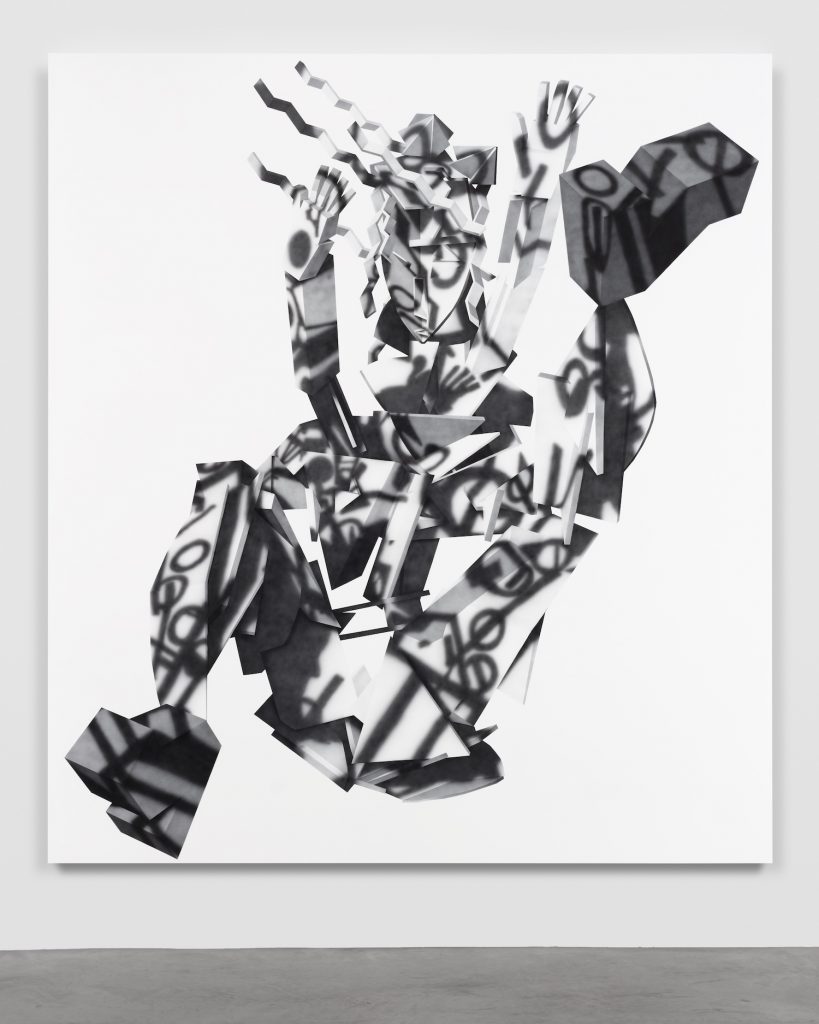
The show, on view at the ICA Miami, marks a semi-autobiographical turn for Singer.

Artnet News

A tragic love story unfolds on September 11, 2001, in Avery Singer’s newest solo exhibition, “Unity Bachelor,” at the Institute of Contemporary Art, Miami.
Across a suite of densely layered paintings, three characters appear: the first, Unity Bachelor, searches for the second, their partner Priya Prasad, who has gone missing after the fall of the Twin Towers, while a third, unnamed figure—an aimless art student who bears a not-so-subtle resemblance to Singer—wanders the streets of downtown Manhattan in a drunken haze.
The show, on view now through October 15, marks a semi-autobiographical turn for Singer, who grew up blocks from the Twin Towers. The subjects of the paintings—a tenement building, a cop car—were largely conceived from memory. At the center of the exhibition is a recreation of the World Trade Center office where the artist’s mother worked prior to 2001.
“[September 11 is] a really hard story for me to tell because it’s a painful one,” Singer told the Wall Street Journal earlier this year. “I want to ground people in a narrative. Maybe I need another 10 or 20 years before I am comfortable using it as a subject. But I thought I would try to start now.”
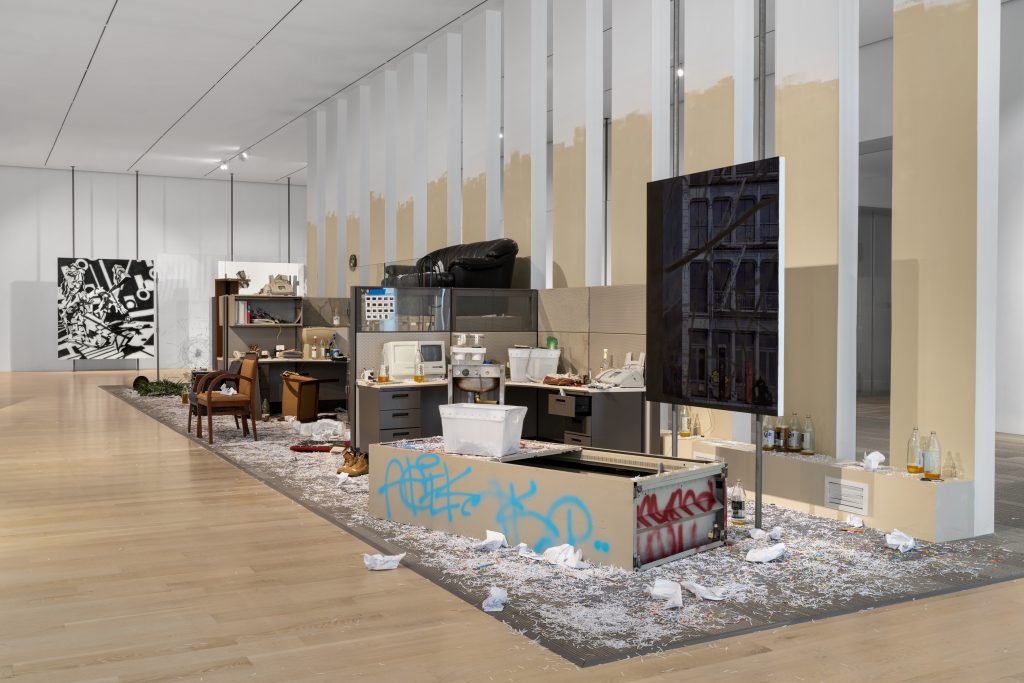
Installation view: “Avery Singer: Unity Bachelor,” at the Institute of Contemporary Art, Miami. Apr 22 – Oct 15, 2023. Photo: Zachary Balber.
The most recognizable images in the show are also the blackest, as if clouded by the pall of what transpired 22 years ago, or the fogged memory of it. Interspersed between these are black-and-white portraits of maquette-like figures—Singer’s signature, created in 3D-design programs and transferred to canvas—that are more abstract but no less haunting. The subject of one appears frozen in a harrowing moment of free fall.
But 9/11 is not the show’s only touchpoint. As with previous efforts, Singer’s paintings are larded with art-historical references. One standout example nods to Marcel Duchamp’s Nude Descending a Staircase (No. 2) (1912).
In Singer’s version, the young art student tumbles down a flight of stairs cluttered with empty cans. The image depicts both an instance of drunkenness and the sensation of it, but the vertiginousness of the scene—and the context of the show around it—evokes a loss of control that no amount of alcohol could match.
See more images from “Unity Bachelor” below.
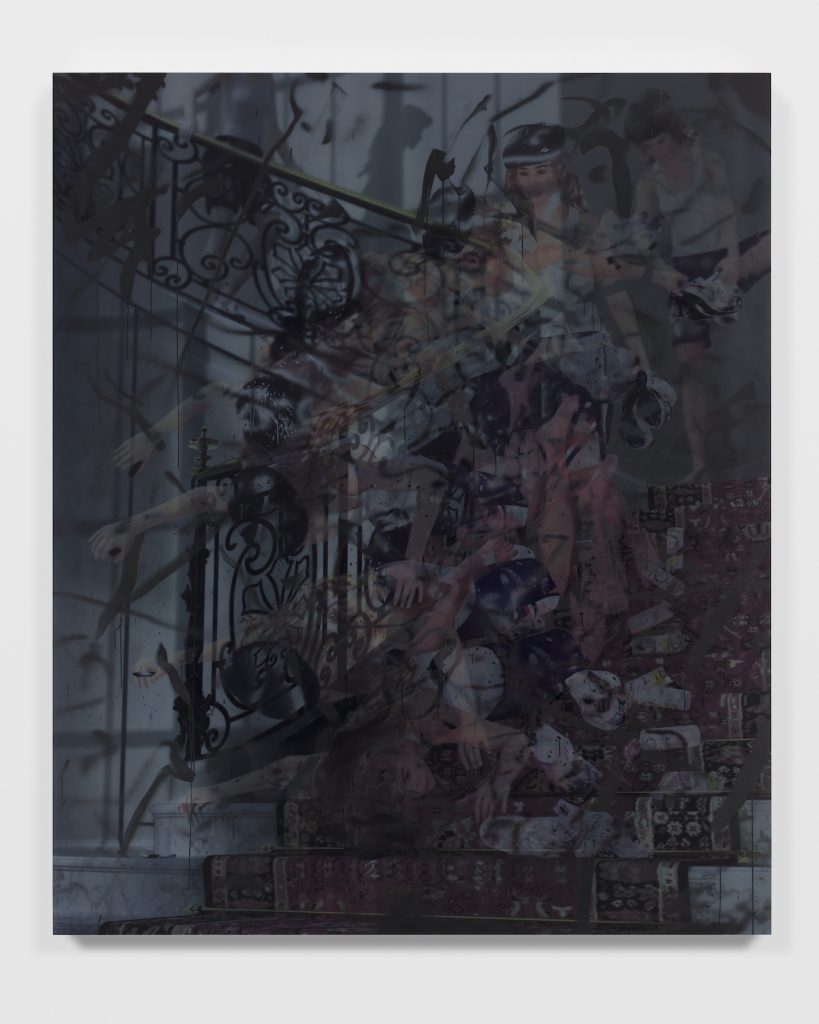
Avery Singer, Free Fall (2022). © Avery Singer. Courtesy the artist and Hauser & Wirth. Photo: Lance Brewer.
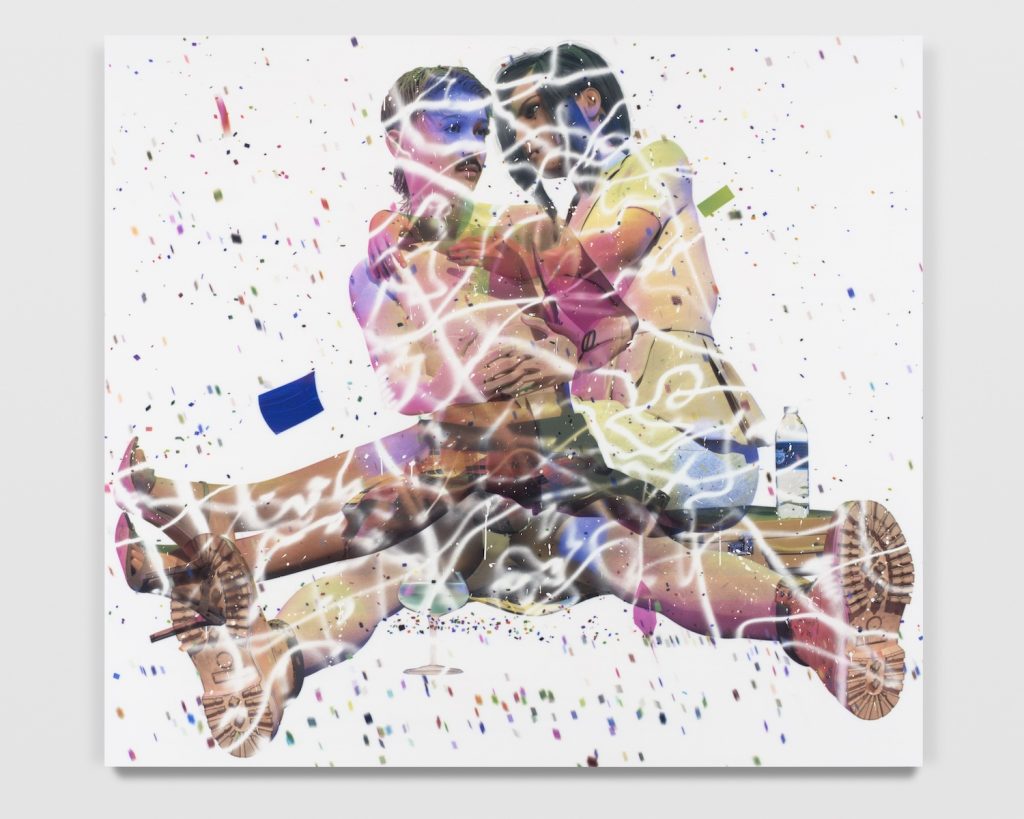
Avery Singer, /Limelight (2023). © Avery Singer. Courtesy of the artist and Hauser & Wirth. Photo: Lance Brewer.
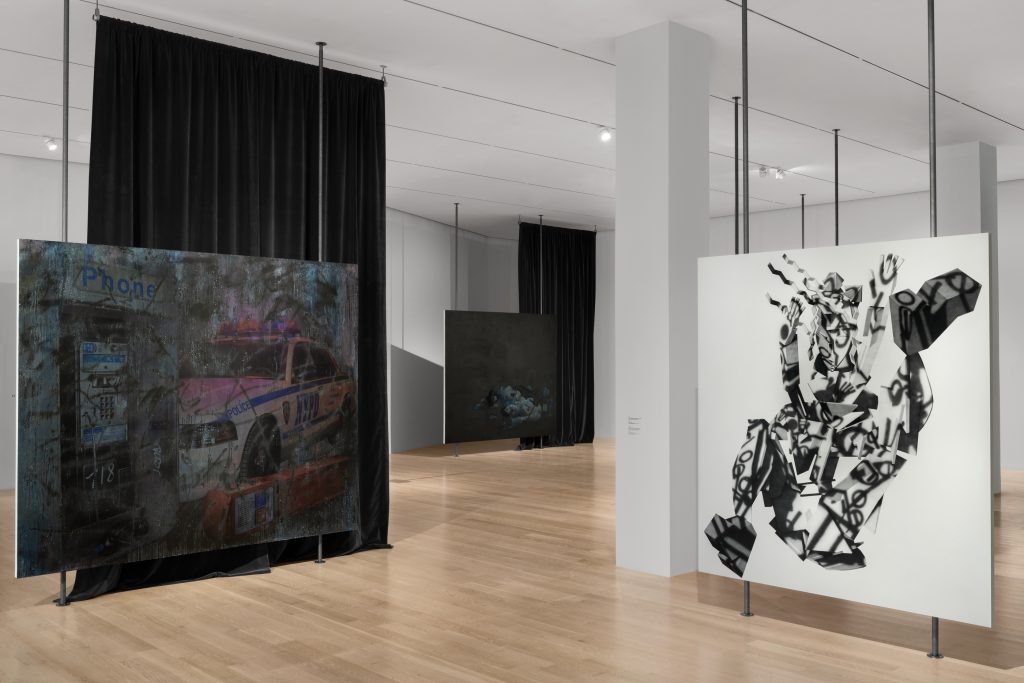
Installation view: “Avery Singer: Unity Bachelor,” at the Institute of Contemporary Art, Miami. Apr 22 – Oct 15, 2023. Photo: Zachary Balber.
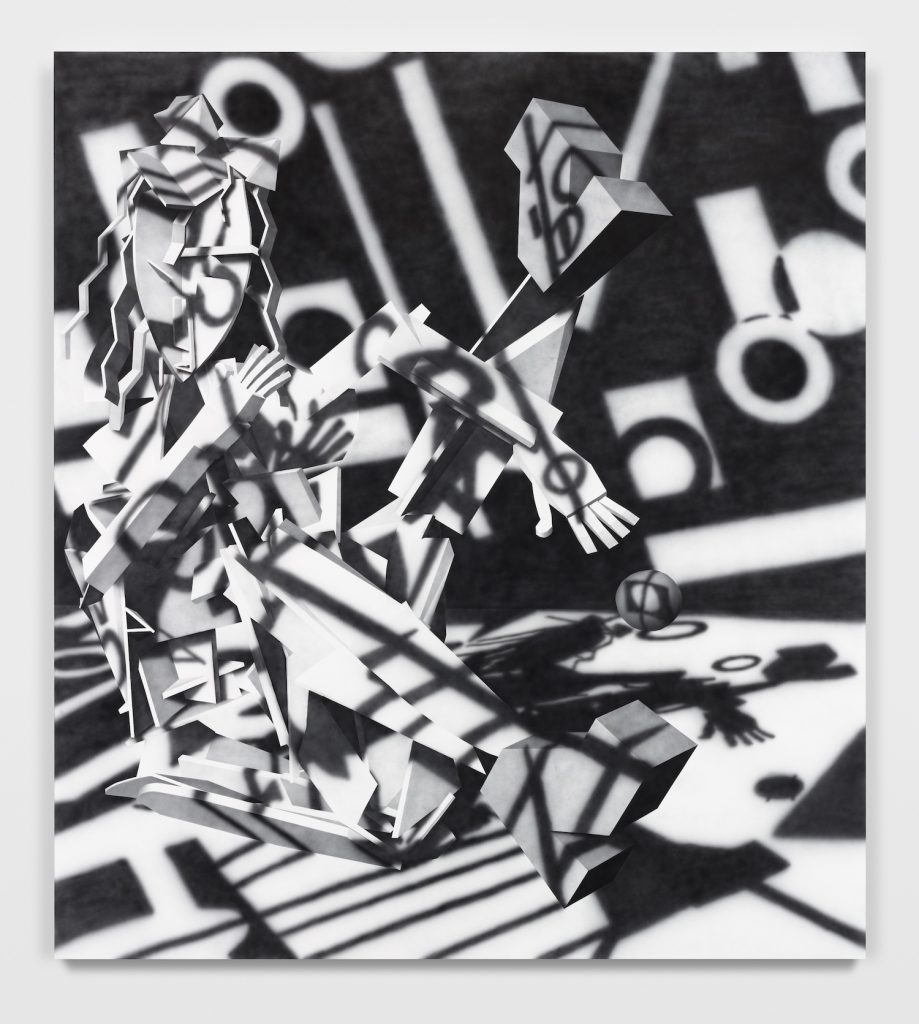
Avery Singer, Free Fall (2022). © Avery Singer. Courtesy of the artist and Hauser & Wirth. Photo: Lance Brewer.
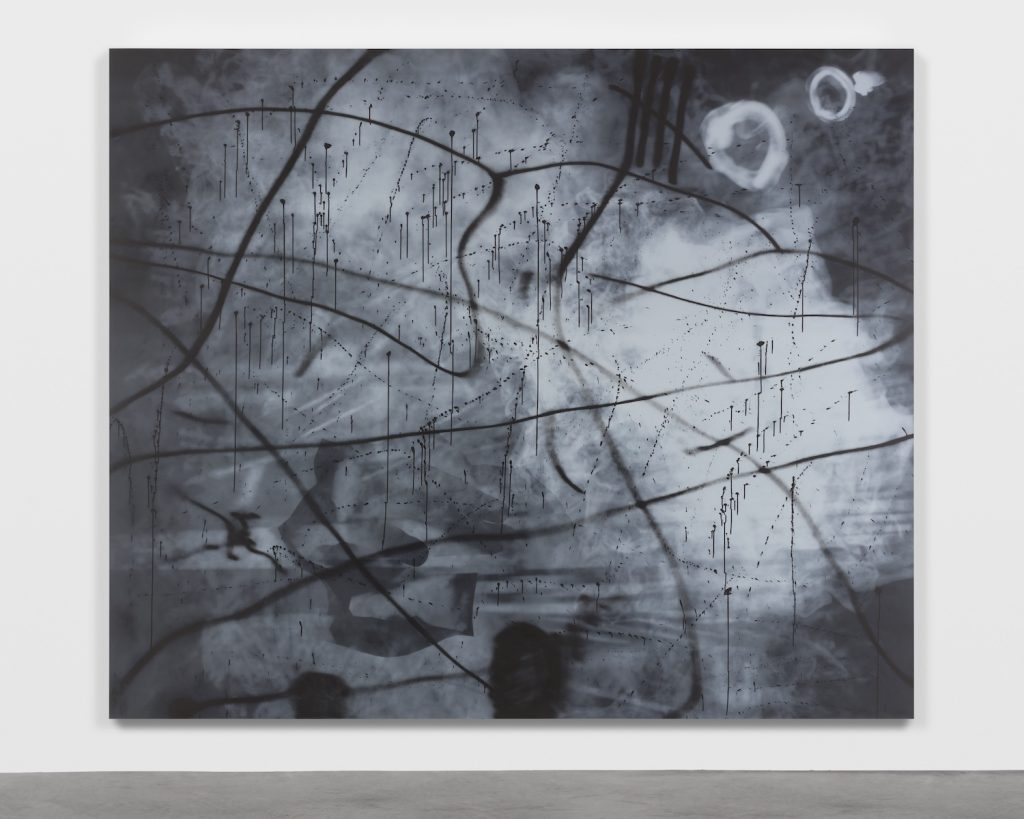
Avery Singer, JUUL Smoke (2021). © Avery Singer. Courtesy of the artist and Hauser & Wirth. Photo: Lance Brewer.
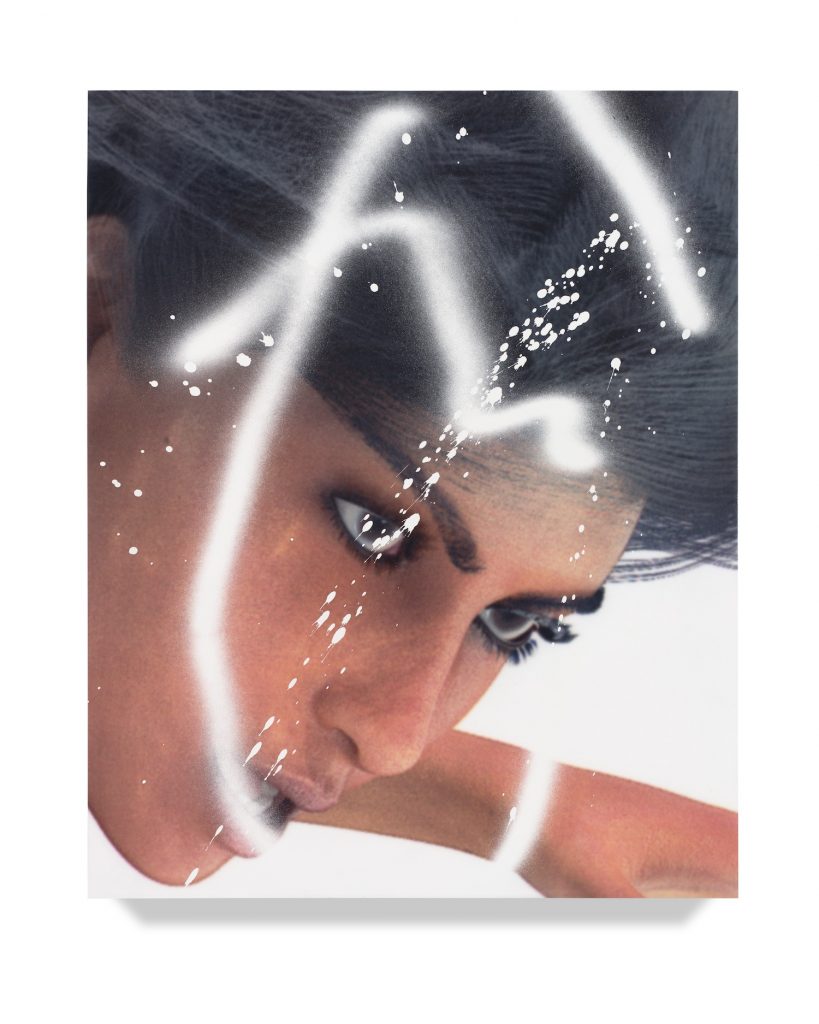
Avery Singer, Free Fall (2022). © Avery Singer. Courtesy of the artist and Hauser & Wirth. Photo: Lance Brewer.
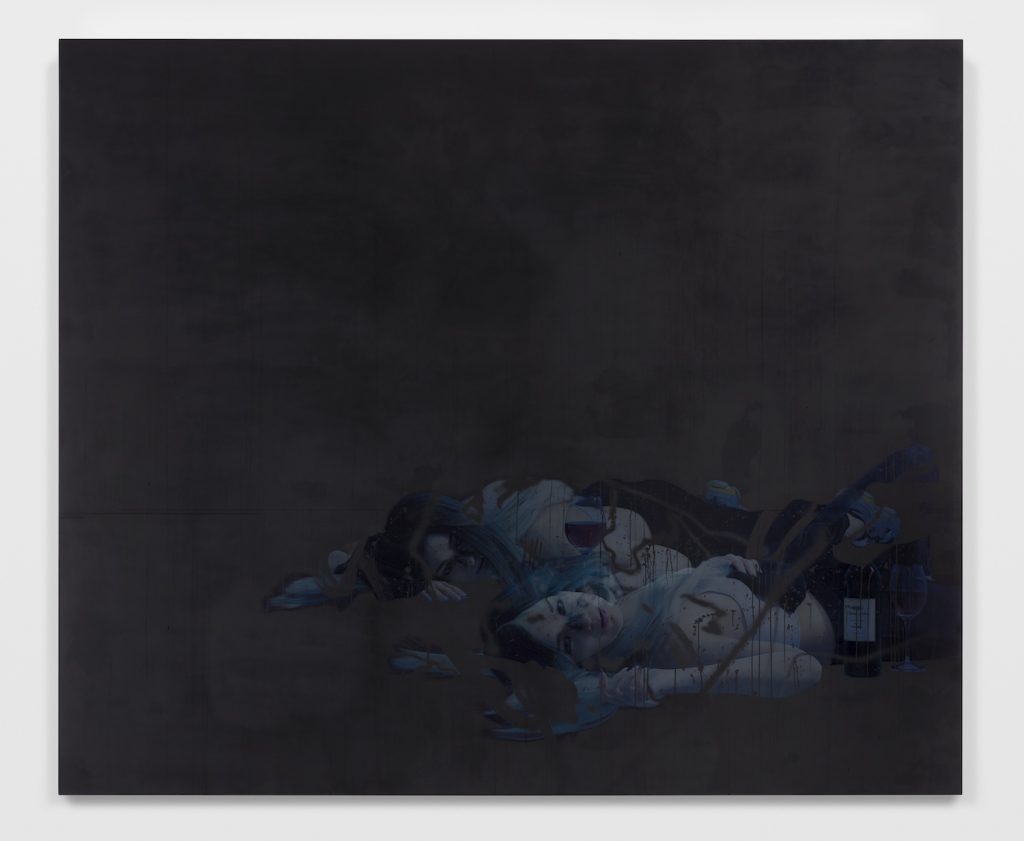
Avery Singer, Black Out (2022). © Avery Singer. Courtesy of the artist and Hauser & Wirth. Photo: Lance Brewer.